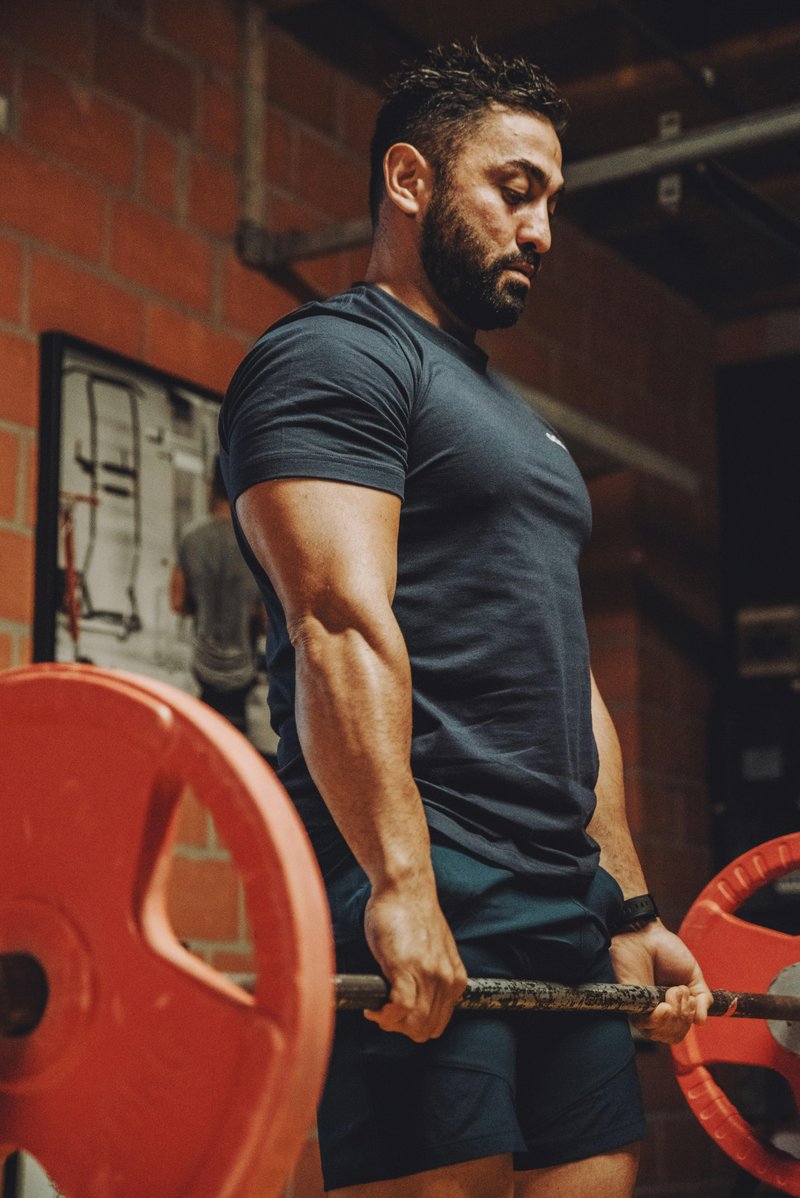When Medication Numbs Desire: The Truth About Rebuilding Libido
If you’re wondering how to rebuild sex drive after antidepressants, you’re not alone. Many men silently suffer from the sexual side effects of medications like SSRIs, SNRIs and other mood stabilizers. The impact on desire, arousal, and even self-image can feel devastating—but there’s a path forward.
In this guide, we’ll walk through actionable steps to reclaim your natural sex drive, supported by science and experience. Whether you’re tapering off your meds or adjusting to a new balance, these strategies can reignite the spark without compromising your mental health progress.
Why Antidepressants Affect Sexual Desire
Antidepressants work by altering brain chemistry—particularly serotonin, dopamine, and norepinephrine. Unfortunately, these same neurotransmitters are also critical to libido and sexual function. When serotonin levels rise too high, for instance, sexual desire can drop drastically.
Medications like fluoxetine (Prozac) and sertraline (Zoloft) are among the most commonly reported culprits when it comes to libido suppression. But that doesn’t mean you’re stuck with a dulled sex drive forever.
Common Symptoms of Antidepressant-Induced Sexual Dysfunction
- Reduced sexual desire
- Difficulty achieving orgasm
- Erectile dysfunction
- Low sensitivity
Understanding the root of the problem is the first step to recovery.
Step 1: Reevaluate Your Medication with a Professional
Never quit antidepressants cold turkey—it can lead to serious withdrawal symptoms. Instead, talk to your doctor about alternatives with fewer sexual side effects. For example, bupropion (Wellbutrin) is known for having minimal impact on libido, and in some cases, it can actually improve it.
Adjusting dosage, timing, or switching medications can make a huge difference. Be open, be honest, and don’t accept suffering in silence.
Step 2: Rebalance Testosterone and Dopamine Naturally
Low testosterone can amplify the sexual side effects of antidepressants. Start by getting your hormone levels checked. Then, support your body’s production through natural methods:
Best Practices to Boost Testosterone Naturally
- Lift weights 3–4x per week
- Get 7–8 hours of sleep
- Eat healthy fats: eggs, avocado, nuts
- Limit alcohol and sugar
- Take zinc and vitamin D supplements
These steps will also improve dopamine levels—the neurotransmitter tied to motivation, reward, and yes—libido.
Want more nutrition tips? Check out our guide on foods that naturally raise testosterone levels.
Step 3: Reconnect With Your Body and Mind
It’s not all chemistry—your mindset matters too. Antidepressants often create emotional numbing, which can lead to a disconnect between your brain and your body. Mindful practices can help bridge that gap.
Mind-Body Techniques That Improve Libido
- Meditation for sexual awareness
- Breathing techniques during intimacy
- Sensate focus exercises with a partner
These tools reduce performance anxiety, increase arousal, and help retrain the body to feel again.
Step 4: Boost Confidence With Small Wins
Your self-image plays a massive role in your libido. If antidepressants left you feeling disconnected or unmanly, it’s time to rebuild alpha confidence from the inside out.
Start with simple habits that reinforce masculinity: cold showers, posture training, assertive communication, or daily micro-challenges that put you slightly out of your comfort zone.
For deeper confidence tips, explore our article on how to build alpha confidence in relationships.
There Is a Proven Path to Sexual Power Again
You don’t have to choose between mental health and sexual satisfaction. With the right approach, you can reclaim both. Access the full guide to natural male enhancement and take control of your recovery journey today.
Conclusion: You’re Not Broken—You’re Rebuilding
Learning how to rebuild sex drive after antidepressants is more than just a health goal—it’s a form of personal rebirth. Your libido isn’t gone. It’s just waiting to be reignited with the right support.
Stay consistent, stay patient, and most importantly—stay hopeful. Every man’s journey is different, but with knowledge, effort and the right tools, you’ll get back to peak performance.
Looking to recover after stress too? Don’t miss our guide on how to recover libido after long stress.
How Long Does It Take to Recover Libido After Antidepressants?
The recovery timeline varies. Some men notice improvements within a few weeks after changing medications or introducing natural boosters. For others, it may take several months.
Here’s a general recovery window:
- 2–4 weeks: minor improvements, especially with supplements or physical activity
- 1–3 months: hormonal rebalancing, better morning erections, return of spontaneous desire
- 3–6 months: full restoration of libido and performance
Progress may be gradual, but even small wins are worth celebrating.
Can Supplements Help Restore Sexual Desire?
Yes, but they work best when combined with lifestyle improvements. Here are some evidence-backed supplements to consider:
Top Natural Libido Boosters
- Maca root: Shown to enhance libido and mood
- Tribulus terrestris: May boost testosterone indirectly
- Panax ginseng: Improves stamina and arousal
- L-citrulline: Supports blood flow for better erections
- Ashwagandha: Reduces cortisol and boosts testosterone
These can complement your recovery protocol, but consult with a physician before starting any new supplement routine.
Sleep, Sperm Count, and Libido: The Overlooked Trio
Sleep quality is a silent factor in libido recovery. Poor rest reduces testosterone production, impairs dopamine signaling, and increases stress hormones—all of which crush sex drive.
Interestingly, research also suggests a direct link between sleep deprivation and sperm health. Learn more in our article on can too little sleep affect sperm count.
Sleep Tips for Libido Optimization
- Stick to a consistent bedtime—even on weekends
- Limit screen time 1 hour before bed
- Use blackout curtains to improve melatonin
- Cool your bedroom to 65–68°F
Stress and Its Sexual Aftermath
Even if you’re off antidepressants, long-term stress can linger in the body and kill your libido. High cortisol levels lower testosterone and impact your mood, stamina, and attraction response.
We recommend diving deeper into post-stress libido in our article: how to recover libido after long stress.
Personal Story: How One Man Reclaimed His Sex Drive
Tom, a 35-year-old software engineer, lost all sexual interest after being prescribed SSRIs for anxiety. “I felt like a shell of myself. Even when I loved my partner deeply, I couldn’t feel anything sexually.”
With the support of his psychiatrist, Tom gradually switched to Wellbutrin, began strength training, improved his sleep hygiene, and started taking maca root daily. After 5 months, his libido returned—stronger than ever.
This isn’t a miracle story. It’s a blueprint. Progress is possible.
🧪 Comparison: Antidepressants and Libido Impact
| Medication | Libido Effect | Suggested Alternative |
|---|---|---|
| Fluoxetine (Prozac) | ❌ High suppression | ✅ Bupropion |
| Sertraline (Zoloft) | ⚠️ Moderate suppression | ✅ Mirtazapine |
| Paroxetine (Paxil) | ❌ Very high suppression | ✅ Vilazodone |
| Bupropion (Wellbutrin) | ✅ Often increases libido | ⭐ Recommended |
❓ FAQs About Libido Recovery After Antidepressants
🔁 Can I fix my sex drive if I’ve taken antidepressants for years?
Yes. Even after long-term SSRI use, many men report libido recovery through hormone support, lifestyle changes, and with the help of their doctors.
⚡ What’s the fastest way to feel desire again?
Start with optimizing testosterone and sleep, then consult your doctor about switching to a medication with fewer side effects—like Bupropion. See this study: NIH research on Wellbutrin.









